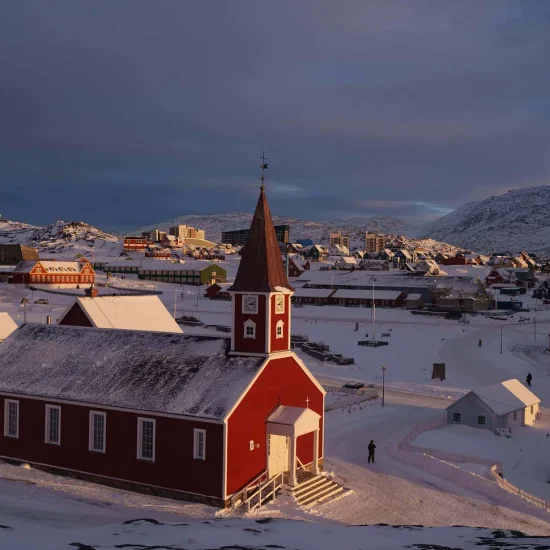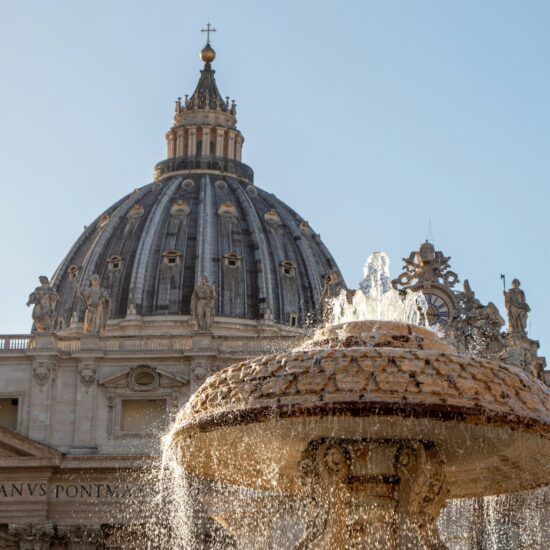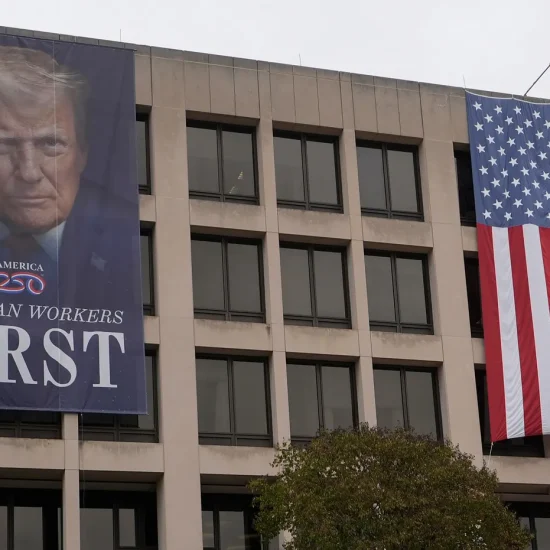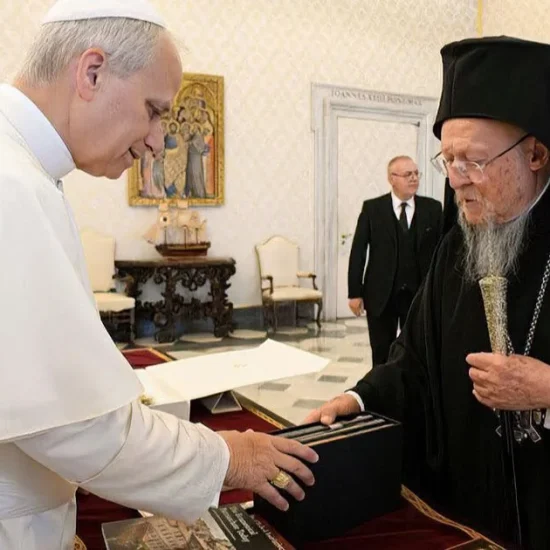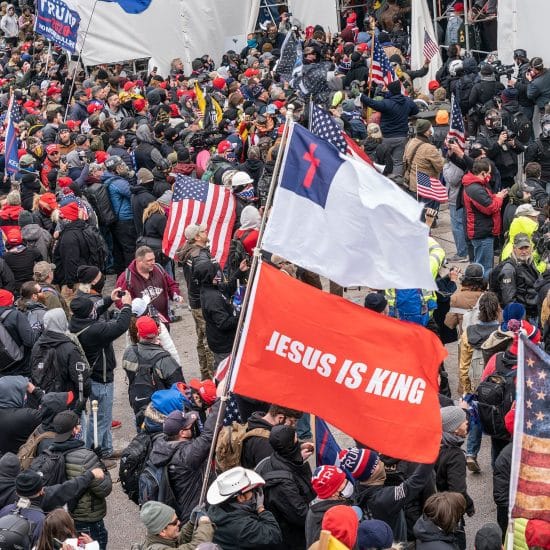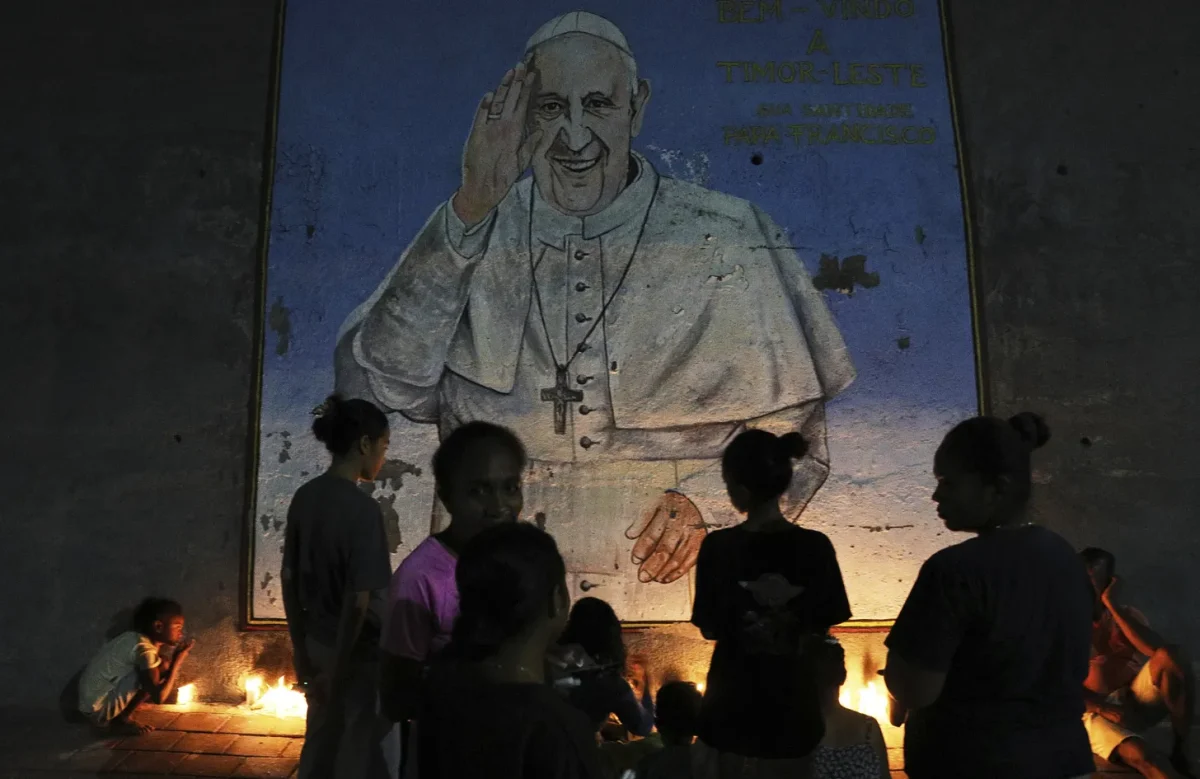
NOTE: This piece was originally published at our Substack newsletter A Public Witness.
Early this morning, on Easter Monday, Pope Francis passed away. He was 88 and had led the Catholic Church for 12 years.
Francis spent the last few months fighting double pneumonia and other respiratory problems, which largely kept him from out of the spotlight this year. However, he made a public appearance yesterday on Easter to bless the thousands of people who gathered in St. Peter’s Square. Before that, he also briefly met with U.S. Vice President J.D. Vance, who converted to Catholicism in 2019. Francis had been critical of the anti-immigrant rhetoric of policies of Vance and President Donald Trump, even challenging Vance’s attempt to make a theological justification for not showing love to migrants.
The first non-European pope in nearly 1,300 years, the Argentine-born Jorge Mario Bergoglio represented a significant shift for the Catholic Church, especially after the rocky tenure of Pope Benedict XVI, who in 2013 became the first pope to resign in 600 years. Often criticized by rightwing Catholics as “liberal,” Francis still held traditionally conservative views on most issues even as his actions and tone often diverged from other recent popes. From his concerns for migrants, poor people, the environment, and peace to his condemnations of powerful politicians and wealthy individuals and corporations, Francis offered a strong public witness for what he wanted to see in his own Church and the world more broadly.
Soon, the attention will shift to guessing who might be the next pope and what it could mean for the Church’s direction, but before the conclave begins and smoke starts billowing out of the chimney, today is a time to remember a unique religious figure who often inspired many Christians inside and outside of the Catholic Church. There are several tributes already that I’ve particularly appreciated. So this issue of A Public Witness offers short highlights from four reflections by Catholic writers on Pope Francis and his papacy.
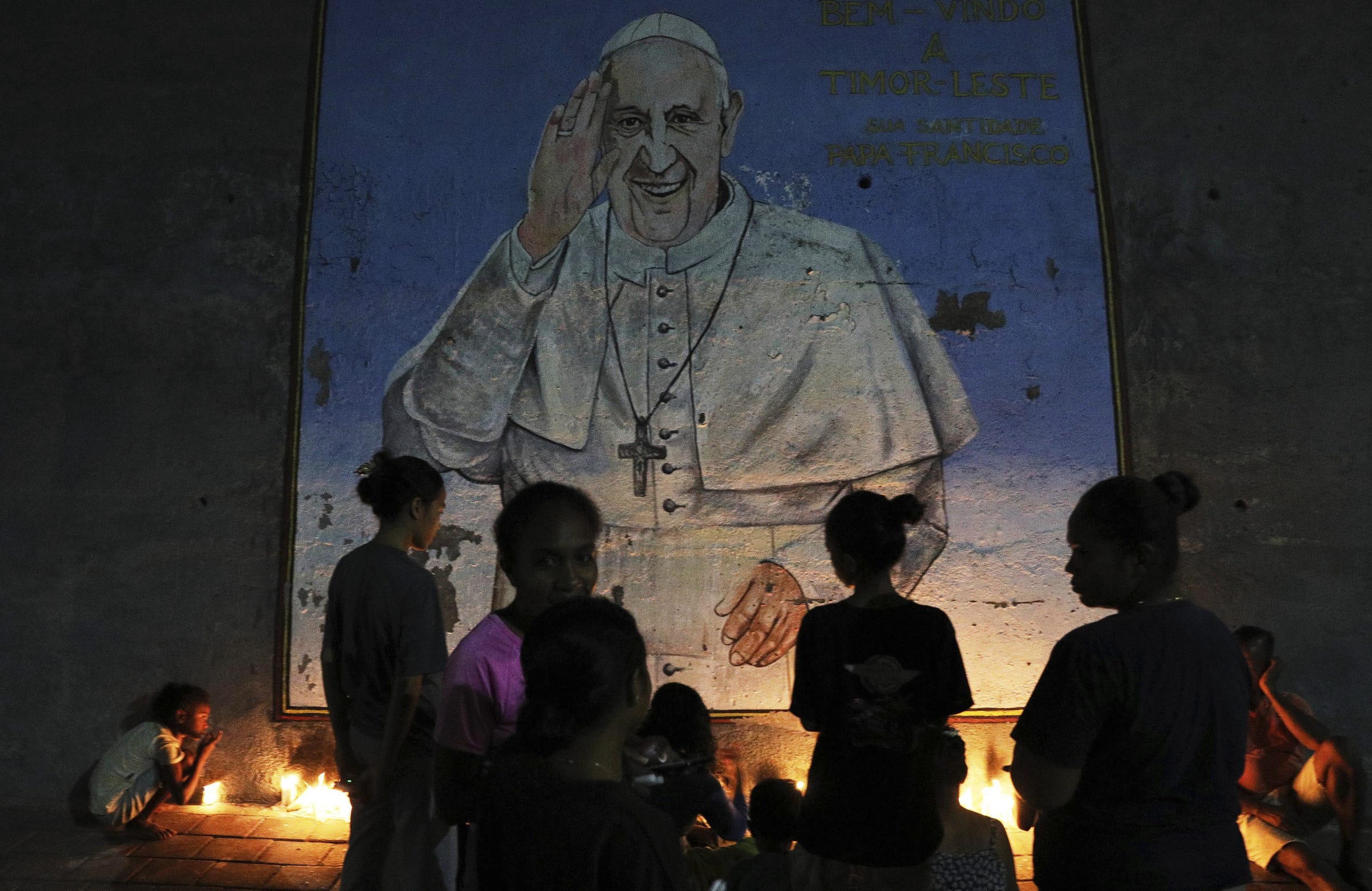
People light candles near a mural of the late Pope Francis during a vigil in Dili, East Timor, on April 21, 2025. (Associated Press)
Anthea Butler
Anthea Butler, a religious studies professor at the University of Pennsylvania, wrote a reflection for MSNBC today about how Francis’s papacy “was a singular event, likely not to be repeated in our lifetimes.” Not just because people didn’t expect a Jesuit to ever become pope but also because of the way he led.
“Francis will be remembered for his charismatic pastoral reign, a sometimes contentious and controversial papacy, and his reshaping of the College of Cardinals in a way that shifted the church’s axis of power outside of Europe,” explained Butler, author of the book White Evangelical Racism: The Politics of Morality in America and the Substack newsletter Under the Desk. “Taking the name of Francis after St. Francis of Assisi, one of the pontiff’s first controversial acts, and a clue to how he’d conduct his papacy, was his moving into Casa Santa Marta immediately after his election, eschewing the traditional papal apartments. His desire to be among people, rather than in the opulent apartments set aside for the church’s leader, was a continuation of how he’d lived as a priest and then as an archbishop in his native Argentina.”
“There will not be another pope like Francis,” she added. “Whatever one’s opinion of him, he changed the face of the Catholic Church. What remains to be seen is whether his changes last.”
E.J. Dionne
A longtime columnist for the Washington Post, E.J. Dionne is also a professor of democracy and culture at Georgetown University, a Jesuit school in Washington, D.C. Earlier in his career, he was a columnist for Commonweal, a liberal Catholic publication. He reflected today on how Francis “transformed Catholicism and its priorities” as “one of the most consequential popes in history.”
“Francis fiercely rebuked the ‘globalization of indifference’ and the ‘idolatry’ of money. He explicitly condemned ‘trickle down’ economics as based on ‘a crude and naive trust in the goodness of those wielding economic power and in the sacralized workings of the prevailing economic system,’” wrote Dionne, author of Souled Out: Reclaiming Faith and Politics After the Religious Right. “The pope is an institutional leader and a global political actor. Francis certainly played those roles, yet his worldview was antithetical to casting the papacy in this light. He was a spiritual rebel and happy troublemaker, pushing the church relentlessly away from clericalism and worldliness.”
“Francis’s papacy cannot be defined by American political feuds,” added Dionne after noting the pope’s clashes with Trump and Vance on immigration and the pope’s defense of giving communion to pro-choice politicians. “More important was his reorientation of the church toward Latin America, Africa, and Asia. His appointments altered the regional and philosophical balance of power within the College of Cardinals, which will pick his successor. Historical judgments of his tenure will rest in part on whether the forces he represented prevail in the coming conclave.”
Help sustain the journalism of Word&Way by subscribing to A Public Witness!
James Martin
Jesuit priest and best-selling author James Martin is known for his outreach to LBTQ individuals, which is often controversial within the Catholic Church. An editor for the Catholic magazine America and founder of Outreach (a news and opinion site for LGBTQ Catholics), Martin argued today that “Pope Francis did more for LGBTQ people than all his predecessors combined.”
“Perhaps because of his experience with LGBTQ people as Archbishop of Buenos Aires, perhaps because more people had been coming out over the last 10 years, or perhaps because he was, at heart, a pastor who wanted to reach out to ‘todos, todos, todos,’ Francis revolutionized the church’s approach to LGBTQ people,” wrote Martin, author of Jesus: A Pilgrimage. “Francis was the first pope ever to use the word gay publicly. His five most famous words, ‘Who am I to judge?,’ referred to a question posed to him about gay priests. He publicly opposed the criminalization of homosexuality, and when asked by Outreach what he would tell bishops who continued to support such a stance, he said simply that they were ‘wrong.’ He appointed an openly gay man, his friend Juan Carlos Cruz, to a pontifical commission. He told parents that they should welcome their gay children. He met regularly with those who minister to LGBTQ people.”
“Now some may scoff or say, as often is the case, ‘Not enough!’ And it’s true that some of the reforms that many LGBTQ people wanted — changing the catechism’s reference to homosexuality as a ‘disorder’ and even approving same-sex marriage — did not happen during Francis’s pontificate,” Martin added. “Like Jesus, Francis taught not only in words but in deeds. And LGBTQ Catholics and their families have told me repeatedly what a difference this change in approach has meant. … His emphasis was always on the pastoral, not the ideological or even theological, and he was always attentive to making sure his own outreach for LGBTQ people would not rupture church unity.”
Francesca Merlo
Vatican News journalist Francesca Merlo today highlighted Francis’s papacy as one focused on pushing for global peace and working against war. She recounted his peace pilgrimages to East Timor, Iraq, Japan, South Sudan, and elsewhere.
“Through words, actions, and deeds, he demonstrated his unshakable belief in the power of reconciliation, the importance of dialogue, and the urgency of ending violence in all its forms,” she wrote. “The Pope’s closeness to those who suffer and his advocacy for an end to global violence were always a priority. Even in moments of personal difficulty, Pope Francis remained committed to peace. In his final weeks, throughout his hospitalization for bilateral pneumonia, Pope Francis took the time to video chat with the Holy Family parish in Gaza, with whom he has been in close contact throughout the entirety of the Israeli offensive.”
“Pope Francis consistently sought to address the roots of destruction, urging those in positions of power to take responsibility. His advocacy for denuclearization was essential in this. So often, Pope Francis denounced the arms trade, repeatedly condemning those who profit from war,” she added. “His was not just a cry for an absence of war, but for the presence of justice, dialogue, and fraternity — for a world that is for everyone and not just for some, and in which those who have more never, ever forget those who have less.”
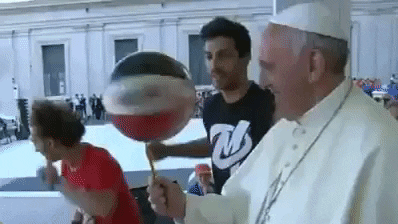
As a public witness,
Brian Kaylor


